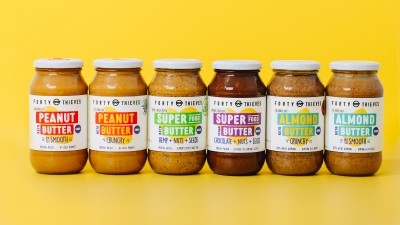‘Long-awaited’ result: New Zealand food sector welcomes new Grocery Code but devil is in the detail

The Grocery Code of Conduct has been a crucial topic of debate and discussion in the New Zealand food industry for over a decade.
The crusade was led by the New Zealand Food and Grocery Council (NZFGC), primarily against local supermarket duopoly Woolworths New Zealand and Foodstuffs having ‘too much bargaining power’ over food and beverage manufacturers and suppliers.
These efforts came full circle to fruition on September 1 2023 when Minister of Commerce and Consumer Affairs Dr Duncan Webb formally launched the Code of Conduct, which will be fully enforced starting September 28 2023.
“This code will initially apply to the two big supermarket chains, Woolworths New Zealand (including the Countdown Brand) and Foodstuffs North Island and South Island (including Pak ‘n Save, New World and Four Square),” Dr Webb stated via a formal statement.
“Big supermarket chains [have been] taking advantage of their dominance and imposing unreasonable terms and conditions – the new code requires large corporates to do things like pay on time, have plain-English supply contracts and deal with small companies in good faith.
“Local suppliers have been stretched for a long time, and that’s stifled innovation and the development of our food supply chain.”
As added incentive for the retailers to adhere to the code, hefty monetary penalties have been put in place for those breaching it with the maximum being ‘the greater of 3% of turnover, the value of any commercial gain from the breach, or NZ$3mn (US$1.78mn)’ whereas individuals can be fined up to NZ$200,000 (US$118,946).
The enforcement of the new code will be overseen by the newly-appointed Grocery Commissioner Pierre van Heerden, whose appointment has already received support from NZFGC.
The council’s Chief Executive Raewyn Bleakley also stressed that whilst the launch of this code is definitely welcomed by the industry, it will be undertaking a detailed examination as well as educating industry players on its impact.
“The Code is a long-awaited step that will go a long way to creating the environment needed for a better and fairer grocery sector,” she told FoodNavigator-Asia.
“This will give suppliers more confidence and help deliver better options to consumers [moving forward].
“We will also be examining this in detail in the coming days, ahead of the code becoming effective later in September [although we thank] the government for [getting this implemented] in tight timeframes.
“[Now], we will be working on training options for [members of the food industry] to help them understand what the Code allows for, what it prohibits, and the avenues available for suppliers to raise concerns; as well as a series of webinars [on] how to prepare for when the Code kicks in.”
Retailer responses
During the lengthy public consultation process over the past two years, a great deal of attention was focused on the Commerce Commission’s findings that competition in the retail grocery sector was ‘not working’ for consumers, including an ‘imbalance in negotiating power’ between the major grocery retailers and the food industry.
“As a result of this imbalance, suppliers are often forced to accept unfavourable terms, including costs and risks that retailers are better placed to manage,” the commission’s final report in March 2022 concluded.
Of particular interest was the revelation that the profitability of the major grocery retailers and and New Zealand grocery prices were both ‘high’ especially by international standards.
Foodstuffs attempted to push back and highlight is ‘actual returns’ as lower than that calculated by the commission, but this failed to deter the progress made on the code based on the commission’s findings.
Later on in the public consultation process, Woolworths NZ entered a submission that broadly played down any opposition to the code, but called for the code to essentially also protect the interests of retailers.
“[It] is not envisaged that suppliers will be subject to obligations under the Code, but it is recognised that the Code ‘could incentivise suppliers to conduct themselves in good faith in their dealings with retailers’,” the firm said in its submission.
“We consider that this does not go far enough and any good faith obligation in the Code should equally apply to suppliers as well as retailers, especially large multinational suppliers.
“This would help to ensure that rights and obligations apply in a consistent way, and that the compliance burden does not fall only on retailers. [There needs to be the recognition that] many of New Zealand’s suppliers are large multinational corporations, many times bigger than [the] grocery retailers.”
As of time of writing, the ‘Good Faith’ clause within Part 2 of the code still has a strong focus on retailers’ ‘obligation to deal with suppliers in good faith’, although a final line states that ‘In determining whether the retailer has acted in good faith in dealing with a supplier, [it may be taken into account] whether in dealing with the retailer, the supplier has acted in good faith’.



















